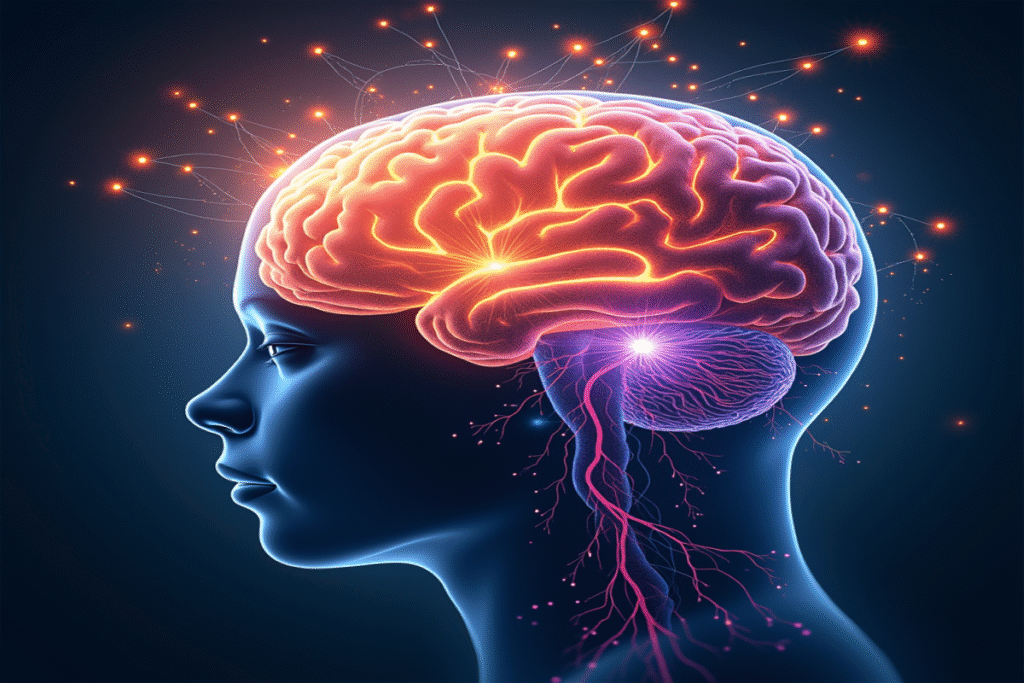Have you ever wondered why a good night’s sleep helps you remember things better? It’s not just your imagination—your brain is actually hard at work overnight, organizing and strengthening memories while you dream. This remarkable process is one of nature’s most extraordinary phenomena, turning rest into a powerful tool for your mind.
Your Brain Never Truly Sleeps
When you fall asleep and your conscious mind fades, your brain shifts into a different mode of operation. Instead of shutting down, it becomes highly active, engaging in a series of processes vital for memory and learning. Throughout the night, your brain cycles through different sleep stages, each with unique roles in maintaining cognitive function.
There are two main types of sleep: Rapid Eye Movement (REM) and Non-REM sleep (including deep, slow-wave sleep). Deep sleep is most common in the first half of the night, while REM sleep—which includes vivid dreams and increased brain activity—becomes more dominant toward morning.
Memory Consolidation: Sleep’s Superpower
One of the most important roles of sleep is memory consolidation—the process of transferring fragile, new memories into stable, long-term ones. Think of it as your brain’s way of filing away what you’ve learned.
During deep sleep, your brain reviews the experiences of the day, transferring important information from the hippocampus (which temporarily stores new memories) to the neocortex (where long-term memories are kept). This process acts like an organized librarian, choosing which memories to keep and how to connect them with what you already know.
Modern brain imaging studies show that the neural pathways involved in learning a new skill during the day are reactivated while you sleep. This replay happens much faster—as if watching a film of your memories on fast-forward.
The Midnight Brain Wash
While consolidating memories, your sleeping brain also goes through a literal cleaning process. Researchers have found that during sleep, the space between brain cells increases by up to 60%, allowing cerebrospinal fluid to circulate more freely and flush out toxic waste that builds up during the day.
This “glymphatic system” is like the brain’s sanitation department, clearing away harmful proteins like beta-amyloid, which is linked to Alzheimer’s disease. This brain-cleaning process may help explain why good sleep is associated with a lower risk of neurodegenerative conditions.
Sleep Makes Learning Stick
Have you ever struggled with a problem, gone to sleep, and woken up with the answer? This is called “sleep-dependent insight,” a real scientific effect. During REM sleep, your brain can forge new connections between seemingly unrelated ideas, often leading to creative breakthroughs.
Studies have shown that people who sleep between periods of learning remember information better than those who do not. In one famous experiment, participants who learned a new skill improved significantly after a night’s sleep, even without extra practice. This shows that sleep doesn’t just protect memories—it helps strengthen them.
The Cost of Skimping on Sleep
Lack of sleep can seriously harm your memory. Even just one poor night’s sleep can reduce your ability to make new memories by up to 40%. If you go 36 hours without sleep, your brain’s capacity to store new information can nearly shut down.
Chronic sleep deprivation is even more dangerous. It’s linked to ongoing cognitive problems and a higher risk of memory disorders. Without enough sleep, your brain simply can’t perform its crucial maintenance and improvement functions.
Optimizing Your Sleep for Better Memory
Knowing that sleep is essential for learning and memory, how can you make the most of this natural process?
- Follow the sleep cycle: Aim for full 90-minute sleep cycles to ensure you get both deep and REM sleep.
- Study before bed: Learning new or difficult material right before sleep can improve recall.
- Keep a regular sleep schedule: Going to bed and waking up at the same time each day helps your brain consolidate memories better.
- Limit alcohol and caffeine: Both can disrupt the restorative sleep stages needed for memory.
- Practice good sleep hygiene: Keep your bedroom dark, quiet, and cool to improve sleep quality.
The Future of Sleep Science
Today’s research is exploring new ways to boost memory through sleep. Scientists are testing techniques like sound cues and gentle electrical stimulation to strengthen certain types of memories overnight. Some studies have found that playing specific sounds during deep sleep, which were linked to earlier learning, can enhance memory for that information.
These advances might one day help people improve memory as they age, or help students learn more efficiently—all during sleep.
A Marvel of Evolution
The relationship between sleep and memory shows how important rest is to life itself. All animals need sleep, despite how vulnerable it can make them, because the benefits are so essential. Nature has made the advantages of sleep so vital that they outweigh the risks of being unaware in a dangerous world.
So tonight, as you fall asleep, remember: your brain isn’t just resting—it’s strengthening your memories, improving your ability to learn, and getting you ready for the challenges ahead. In the peaceful darkness, your brain is turning today’s experiences into lasting knowledge.





